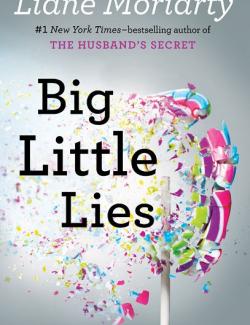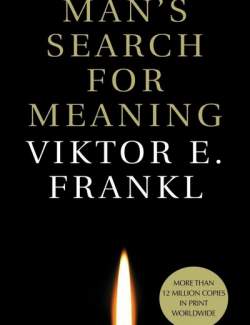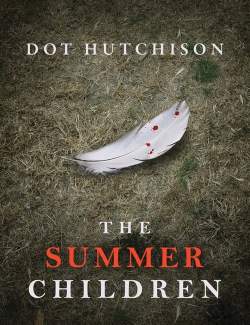(×òîáû ïåðåâîäèòü ñëîâà íà ðóññêèé ÿçûê è äîáàâëÿòü â ñëîâàðü äëÿ èçó÷åíèÿ, ùåëêàåì ìûøêîé íà íóæíîå ñëîâî).
1.That doesn’t sound like a school trivia night,” said Mrs. Patty Ponder to Marie Antoinette. “That sounds like a riot.” The cat didn’t respond. She was dozing on the couch and found school trivia nights to be trivial. “Not interested, eh? Let them eat cake! Is that what you’re thinking? They do eat a lot of cake, don’t they? All those cake stalls. Goodness me. Although I don’t think any of the mothers ever actually eat them. They’re all so sleek and skinny, aren’t they? Like you.” Marie Antoinette sneered at the compliment. The “let them eat cake” thing had grown old a long time ago, and she’d recently heard one of Mrs. Ponder’s grandchildren say it was meant to be “let them eat brioche” and also that Marie Antoinette never said it in the first place. Mrs. Ponder picked up her television remote and turned down the volume on Dancing with the Stars. She’d turned it up loud earlier because of the sound of the heavy rain, but the downpour had eased now. She could hear people shouting. Angry hollers crashed through the quiet, cold night air. It was somehow hurtful for Mrs. Ponder to hear, as if all that rage were directed at her. (Mrs. Ponder had grown up with an angry mother.) “Goodness me. Do you think they’re arguing over the capital of Guatemala? Do you know the capital of Guatemala? No? I don’t either. We should Google it. Don’t sneer at me.” Marie Antoinette sniffed. “Let’s go see what’s going on,” said Mrs. Ponder briskly. She was feeling nervous and therefore behaving briskly in front of the cat, the same way she’d once done with her children when her husband was away and there were strange noises in the night. Mrs. Ponder heaved herself up with the help of her walker. Marie Antoinette slid her slippery body comfortingly in between Mrs. Ponder’s legs (she wasn’t falling for the brisk act) as she pushed the walker down the hallway to the back of the house. Her sewing room looked straight out onto the school yard of Pirriwee Public. “Mum, are you mad? You can’t live this close to a primary school,” her daughter had said when she was first looking at buying the house. But Mrs. Ponder loved to hear the crazy babble of children’s voices at intervals throughout the day, and she no longer drove, so she couldn’t care less that the street was jammed with those giant, truck-like cars they all drove these days, with women in big sunglasses leaning across their steering wheels to call out terribly urgent information about Harriett’s ballet and Charlie’s speech therapy. Mothers took their mothering so seriously now. Their frantic little faces. Their busy little bottoms strutting into the school in their tight gym gear. Ponytails swinging. Eyes fixed on the mobile phones held in the palms of their hands like compasses. It made Mrs. Ponder laugh. Fondly though. Her three daughters, although older, were exactly the same. And they were all so pretty. “How are you this morning?” she always called out if she was on the front porch with a cup of tea or watering the front garden as they went by. “Busy, Mrs. Ponder! Frantic!” they always called back, trotting along, yanking their children’s arms. They were pleasant and friendly and just a touch condescending because they couldn’t help it. She was so old! They were so busy! The fathers, and there were more and more of them doing the school run these days, were different. They rarely hurried, strolling past with a measured casualness. No big deal. All under control. That was the message. Mrs. Ponder chuckled fondly at them too. But now it seemed the Pirriwee Public parents were misbehaving. She got to the window and pushed aside the lace curtain. The school had recently paid for a window guard after a cricket ball had smashed the glass and nearly knocked out Marie Antoinette. (A group of Year 3 boys had given her a hand-painted apology card, which she kept on her fridge.) There was a two-story sandstone building on the other side of the playground with an event room on the second level and a big balcony with ocean views. Mrs. Ponder had been there for a few functions: a talk by a local historian, a lunch hosted by the Friends of the Library. It was quite a beautiful room. Sometimes ex-students had their wedding receptions there. That’s where they’d be having the school trivia night. They were raising funds for SMART Boards, whatever they were. Mrs. Ponder had been invited as a matter of course. Her proximity to the school gave her a funny sort of honorary status, even though she’d never had a child or grandchild attend. She’d said no thank you to the school trivia night invitation. She thought school events without the children in attendance were pointless. The children had their weekly school assembly in the same room. Each Friday morning, Mrs. Ponder set herself up in the sewing room with a cup of English Breakfast and a ginger-nut biscuit. The sound of the children singing floating down from the second floor of the building always made her weep. She’d never believed in God, except when she heard children singing. There was no singing now. Mrs. Ponder could hear a lot of bad language. She wasn’t a prude about bad language—her eldest daughter swore like a trooper—but it was upsetting and disconcerting to hear someone maniacally screaming that particular four-letter word in a place that was normally filled with childish laughter and shouts. “Are you all drunk?” she said. Her rain-splattered window was at eye level with the entrance doors to the building, and suddenly people began to spill out. Security lights illuminated the paved area around the entrance like a stage set for a play. Clouds of mist added to the effect. It was a strange sight. The parents at Pirriwee Public had a baffling fondness for costume parties. It wasn’t enough that they should have an ordinary trivia night; she knew from the invitation that some bright spark had decided to make it an “Audrey and Elvis” trivia night, which meant that the women all had to dress up as Audrey Hepburn and the men had to dress up as Elvis Presley. (That was another reason Mrs. Ponder had turned down the invitation. She’d always abhorred costume parties.) It seemed that the most popular rendition of Audrey Hepburn was the Breakfast at Tiffany’s look. All the women were wearing long black dresses, white gloves and pearl chokers. Meanwhile, the men had mostly chosen to pay tribute to the Elvis of the latter years. They were all wearing shiny white jumpsuits, glittery gemstones and plunging necklines. The women looked lovely. The poor men looked perfectly ridiculous. As Mrs. Ponder watched, one Elvis punched another across the jaw. He staggered back into an Audrey. Two Elvises grabbed him from behind and pulled him away. An Audrey buried her face in her hands and turned aside, as though she couldn’t bear to watch. Someone shouted, “Stop this!” Indeed. What would your beautiful children think? “Should I call the police?” wondered Mrs. Ponder out loud, but then she heard the wail of a siren in the distance, at the same time as a woman on the balcony began to scream and scream. Gabrielle: It wasn’t like it was just the mothers, you know. It wouldn’t have happened without the dads. I guess it started with the mothers. We were the main players, so to speak. The mums. I can’t stand the word “mum.” It’s a frumpy word. “Mom” is better. With an o. It sounds skinnier. We should change to the American spelling. I have body-image issues, by the way. Who doesn’t, right? Bonnie: It was all just a terrible misunderstanding. People’s feelings got hurt, and then everything just spiraled out of control. The way it does. All conflict can be traced back to someone’s feelings getting hurt, don’t you think? Divorce. World wars. Legal action. Well, maybe not every legal action. Can I offer you an herbal tea? Stu: I’ll tell you exactly why it happened: Women don’t let things go. Not saying the blokes don’t share part of the blame. But if the girls hadn’t gotten their knickers in a knot . . . And that might sound sexist, but it’s not, it’s just a fact of life. Ask any man—not some new-age, artsy-fartsy, I-wear-moisturizer type, I mean a real man—ask a real man, then he’ll tell you that women are like the Olympic athletes of grudges. You should see my wife in action. And she’s not even the worst of them. Miss Barnes: Helicopter parents. Before I started at Pirriwee Public, I thought it was an exaggeration, this thing about parents being overly involved with their kids. I mean, my mum and dad loved me, they were, like, interested in me when I was growing up in the nineties, but they weren’t, like, obsessed with me. Mrs. Lipmann: It’s a tragedy, and deeply regrettable, and we’re all trying to move forward. I have no further comment. Carol: I blame the Erotic Book Club. But that’s just me. Jonathan: There was nothing erotic about the Erotic Book Club, I’ll tell you that for free. Jackie: You know what? I see this as a feminist issue. Harper: Who said it was a feminist issue? What the heck? I’ll you what started it: the incident at the kindergarten orientation day. Graeme: My understanding was that it all goes back to the stay-at-home mums battling it out with the career mums. What do they call it? The Mummy Wars. My wife wasn’t involved. She doesn’t have time for that sort of thing. Thea: You journalists are just loving the French-nanny angle. I heard someone on the radio today talking about the “French maid,” which Juliette was certainly not. Renata had a housekeeper as well. Lucky for some. I have four children, and no staff to help out! Of course, I don’t have a problem per se with working mothers, I just wonder why they bothered having children in the first place. Melissa: You know what I think got everyone all hot and bothered? The head lice. Oh my gosh, don’t let me get started on the head lice. Samantha: The head lice? What did that have to do with anything? Who told you that? I bet it was Melissa, right? That poor girl suffered post-traumatic stress disorder after her kids kept getting reinfected. Sorry. It’s not funny. It’s not funny at all. Detective-Sergeant Adrian Quinlan: Let me be clear: This is not a circus. This is a murder investigation. 2. Six Months Before the Trivia Night F orty. Madeline Martha Mackenzie was forty years old today. “I am forty,” she said out loud as she drove. She drew the word out in slow motion, like a sound effect. “Fooorty.” She caught the eye of her daughter in the rearview mirror. Chloe grinned and imitated her mother. “I am five. Fiiiive.” “Forty!” trilled Madeline like an opera singer. “Tra la la la!” “Five!” trilled Chloe. Madeline tried a rap version, beating out the rhythm on the steering wheel. “I’m forty, yeah, forty—” “That’s enough now, Mummy,” said Chloe firmly. “Sorry,” said Madeline. She was taking Chloe to her kindergarten—“Let’s Get Kindy Ready!”—orientation. Not that Chloe required any orientation before starting school next January. She was already very firmly oriented at Pirriwee Public. At this morning’s drop-off Chloe had been busy taking charge of her brother, Fred, who was two years older but often seemed younger. “Fred, you forgot to put your book bag in the basket! That’s it. In there. Good boy.” Fred had obediently dropped his book bag in the appropriate basket before running off to put Jackson in a headlock. Madeline had pretended not to see the headlock. Jackson probably deserved it. Jackson’s mother, Renata, hadn’t seen it either, because she was deep in conversation with Harper, both of them frowning earnestly over the stress of educating their gifted children. Renata and Harper attended the same weekly support group for parents of gifted children. Madeline imagined them all sitting in a circle, wringing their hands while their eyes shone with secret pride. While Chloe was busy bossing the other children around at orientation (her gift was bossiness, she was going to run a corporation one day), Madeline was going to have coffee and cake with her friend Celeste. Celeste’s twin boys were starting school next year too, so they’d be running amuck at orientation. (Their gift was shouting. Madeline had a headache after five minutes in their company.) Celeste always bought exquisite and very expensive birthday presents, so that would be nice. After that, Madeline was going to drop Chloe off with her mother-in-law, and then have lunch with some friends before they all rushed off for school pickup. The sun was shining. She was wearing her gorgeous new Dolce
Èíôîðìàöèÿ
Ïîñåòèòåëè, íàõîäÿùèåñÿ â ãðóïïå Ãîñòè, íå ìîãóò îñòàâëÿòü êîììåíòàðèè ê äàííîé ïóáëèêàöèè.

















